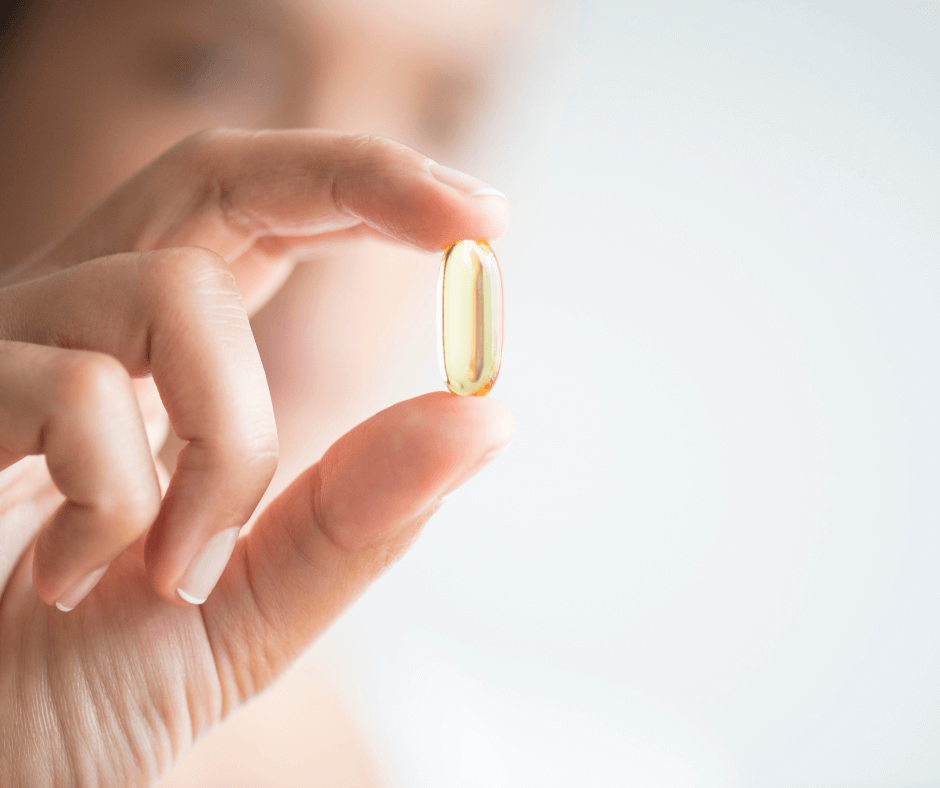Vitamin C: Benefits, Function and Dosage
 Vitamin C is one of the most well-known and widely used vitamins in the world. With numerous studies demonstrating its many health benefits, it's no wonder that Vitamin C is one of the most popular dietary supplements. In this blog, we'll take a closer look at the key benefits of Vitamin C and how you can incorporate it into your daily routine for optimal health and wellness.
Vitamin C is one of the most well-known and widely used vitamins in the world. With numerous studies demonstrating its many health benefits, it's no wonder that Vitamin C is one of the most popular dietary supplements. In this blog, we'll take a closer look at the key benefits of Vitamin C and how you can incorporate it into your daily routine for optimal health and wellness.What is Vitamin C?
Vitamin C is probably the world’s most well-known vitamin. Vitamin C is classed as an essential vitamin as the body cannot make it and as a result, we need to obtain it in our diet.
Vitamin C, also known as ascorbic acid, is a powerful antioxidant that is found in fruit and vegetables. It has many important functions in the body and plays a vital role in immunity, reducing tiredness and fatigue, improving energy and skin health.
Antioxidants protect the body against harmful free radicals that damage cells and can cause inflammation and mutations. These antioxidant properties make vitamin C a cell protector and a booster of the bodies defence against viruses’, colds and flu. Those with low vitamin C levels have also been linked to have a higher risk of chronic diseases like dementia and heart disease.
What is Vitamin C good for?
If you were to ask what does vitamin C do and what is it good for, it would be impossible to sum it up in a few words. This water-soluble vitamin has many health benefits and plays a central role in functions ranging from immune support to energy. This article provides a comprehensive overview of the benefits of vitamin C.
Function of Vitamin C in your body
Vitamin C has several functions within the body. The most well-known functions, and those that you may have already heard of, are its role in maintaining the normal function of the immune system and contributing to energy production. These benefits make it the perfect vitamin for when you are feeling ill with cold or flu symptoms. Not only does it help support your immune system, but it also has the added benefit of acting as a ‘pick me up’ helping reduce tiredness and fatigue.
Interestingly, vitamin C also has a role in normal collagen formation which benefits blood vessels, bones, cartilage, gums, skin and teeth. Vitamin C is even made into serums that can be spread on to the skin due to its skin hydrating and brightening properties, whilst promoting collagen production. Vitamin C is a potent antioxidant so helps to protect the body from harmful free radicals.
One of vitamin Cs lesser-known functions is that it increases iron absorption. It is quite often recommended that if you take an iron supplement for anaemia you should also take it alongside a vitamin C supplement to help its absorption and effectiveness.
8 Vitamin C Benefits
- Immune support – Our immune systems are there to protect us from invading pathogens, viruses, bacteria and more! To function at its best, we need to make sure we are fuelling our bodies with the correct nutrition. It has been shown in studies that people who are deficient in vitamins like vitamin C are more susceptible to viruses and their recovery is longer. A study showed that regular vitamin C supplementation reduced the duration and severity of cold and flu symptoms in adults and children.
- Supports energy metabolism and helps reduce tiredness and fatigue – when the body is put under stress like through intense exercise and illnesses like colds, we can simultaneously feel fatigued and lack energy. Ensuring that your body is supplied with enough vitamin C can help to reduce tiredness and give an energy boost.
- Supports skin health – vitamin C is important in collagen production. It has shown to reduce dark circles and make skin look more radiant. It is important to get enough vitamin C through your diet, but it can also be applied directly to the skin in serum or cream form.
- Helps create vitamin E – vitamin E is a potent antioxidant and vitamin C actually plays a role in converting by-products from certain bodily processes into vitamin E!
- May help to manage weight and burn fat – a study has shown that individuals with an adequate intake of vitamin C burnt 30% more fat during exercise compared to those with a low vitamin C level.
- Shown to reduce risk of disease – vitamin C is a potent antioxidant and helps protect the body against dangerous free radicals that can lead to chronic diseases like cancers and heart disease
- Helps prevent deficiency in iron – vitamin C aids iron absorption in the body. This helps increase the uptake of iron by the blood stream and helps iron levels to increase, ensuring dietary iron consumption is optimised. Iron is an important component of blood and if we don’t absorb enough, it can have negative effects on our health including tiredness and fatigue.
- Helps protect future memory and brain health – a review of data was carried out that showed that those with higher levels of vitamin C have better brain function.
What are the best sources of Vitamin C?
The best food sources with high vitamin c content include acerola cherries, chili peppers, blackcurrants, elderberries, strawberries, kiwi, broccoli, lemons and oranges.
Did you know the Kadadu plum, that is native to Australia, has 100 times more vitamin C than the humble orange? The best sources of vitamin C are fresh fruits and vegetables.
It is important to have a mixed and varied diet full of fruits and vegetables in order to obtain your daily recommended intake. If it is a struggle to obtain vitamin C through diet alone then there are also vitamin C supplements that provide your daily recommended level.
Vitamin C for kids: Benefits and Dosage
Nurseries and schools are commonly associated as being breeding grounds for all sorts of germs and viruses. As children are always mixing in close quarters there is an increased chance of spreading viruses. Not only is Vitamin C important to children’s overall health but it also helps support their immune system. This helps to combat viruses and colds, and has been shown to reduce illness duration. It also helps them absorb iron better, helping with their iron levels.
Vitamin C also has the benefit of assisting normal collagen formation this has been shown to be important for healthy gums, teeth, bones and skin in children.
Vitamin C is very safe and has little risk of overdose. It is also commonly given in higher concentrations in supplement form that you can buy from trusted high street retailers due to its high safety profile. Taking too much could lead to increased side effects like diarrhoea, so it is recommended to stick to the guidelines. A guide to the daily dosage for vitamin C for children is below:
For children aged 1 to 3: 15mg of vitamin C per day
For children aged 3 to 8: 25mg of vitamin C per day
For children aged 8 to 13: 45mg of vitamin C per day
For children aged 14 to 18: 75mg of vitamin C per day
What is the recommended daily intake of Vitamin C?
It is recommended by the NHS that adults need 40mg of vitamin C a day. They have set the safe limit as up to 1000mg a day of vitamin C, and this is commonly found in vitamin C supplements. Anything more than 1000mg is not recommended as it can cause stomach pain, diarrhoea and flatulence (4).
For children it is recommended by the department of health that all children aged 6 months to 5 years should take a vitamin C supplement containing vitamin C (ascorbic acid) (5). If the baby is formula fed then to double check what is provided vitamin C is provided in the formula milk and not to double dose with another supplement.
Apokra Vitamin C drops for kids, provide the department of health recommend vitamin, vitamin C (ascorbic acid). It comes with a convenient dropper that can be used to easily mix the liquid with drinks and foods. It mixes very well and can’t be noticed, which is great for kids. The liquid is preservative free and sugar free and has all the benefits of vitamin C in a bottle (60 day supply)!




Comments
Lascia un commento
Your Email Address Will Not Be Published. Required Fields Are Marked *